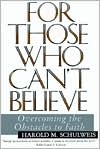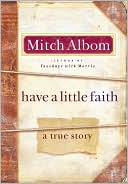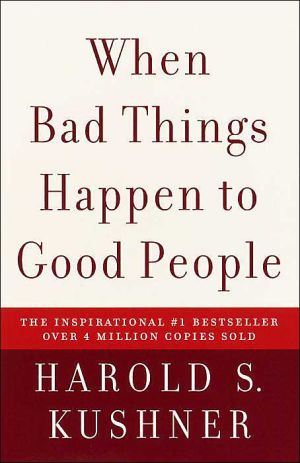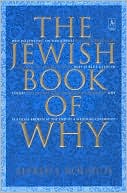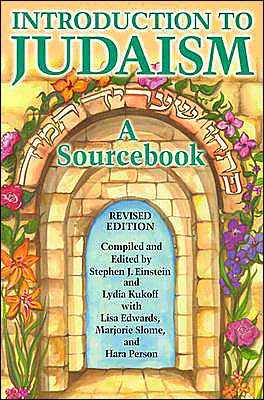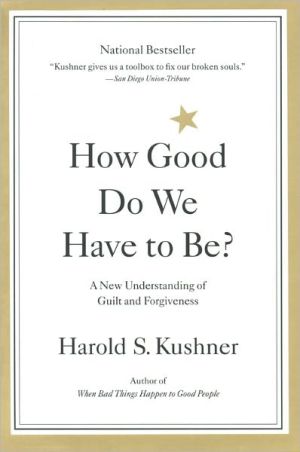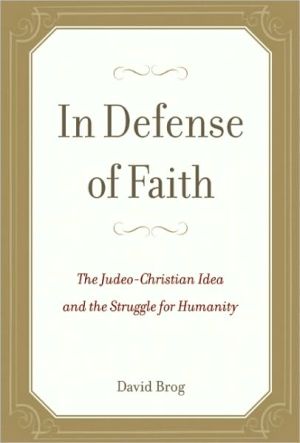For Those Who Can't Believe: Overcoming the Obstacles to Faith
The distinguished rabbi of one of America's largest congregations offers a welcoming view of Judaism that will inspire the believer and the non-believer alike.
Search in google:
The distinguished rabbi of one of America's largest congregations offers a welcoming view of Judaism that will inspire the believer and the non-believer alike.
Chapter One\ \ Touching God\ It may sound strange but I began\ to ponder creation \ when I was still a little boy. . . .\ What is time? What is space?\ What is eternity? Infinity?\ How can something be created\ from nothing?\ God has created the world\ but who created God?\ Isaac Bashevis Singer\ \ Children are born philosophers. They possess the sense of wonder, and out of wonder faith springs.\ Questions are the birth pangs of philosophy and theology. We must pay attention to first questions and to first answers, for they carry crucial consequences for spiritual growth. First questions and answers are the building blocks out of which basic attitudes toward religion are formed. They will not be the last questions asked, unless the answers close off all further inquiry.\ \ "Really" Questions\ What do children ask? They begin with "really" questions. Did the serpent "really" speak to Eve in the Garden of Eden? Did Noah "really" gather all the beasts and the animals and the fowl in his ark? Are our prayers "really" heard and "really" answered? Was it "really" right for God to harden Pharaoh's heart and kill the firstborn?\ A bit older they may add speculative "if" questions. If God is all powerful, can He make a stone so heavy that He Himself cannot lift it? If He can, He is not all powerful. If He can't, He is not all powerful. If God knows His own future, must He not do what He knows He will do? If not, God is limited in knowledge.\ Like many young people, Isaac Bashevis Singer began to study the Book of Genesis with both faith and doubt, and also like so many, he found that the more he read, the more questions assailed him."If God could have created Adam by the words of His mouth, why did He have to cast a deep sleep upon Adam to form Eve from one of his ribs? . . . Why since God is a God of mercy did He accept the sacrifice of Abel and not of Cain? Didn't He foresee that this would cause jealousy and enmity between the two brothers?"\ On the surface, the questions are about God and prayer and Bible stories. But they are not only about serpents and magical rods and logical contradictions. They are about the religious understanding of reality. What is the world really like? What can I trust? Whom can I trust? What can I expect? What can I hope for? What in me is real? What in the world is really real, truly important for my life?\ The religious inquiries of our youth are the most important questions we may ever ask. The answers that define reality affect our self-understanding, our morality and morale. The poet Wallace Stevens wrote, "We live in the description of a place, not in the place itself." Religion is the description of the place we inhabit.\ "Later"\ Why is it that when we grow up, we no longer ask these questions? What happens to the wonder of childhood?\ My first teacher of religion was my grandfather. An erudite man, he taught me how to translate the biblical text and how to pray. He was patient and proud of my questions. Perhaps not all my questions. He was patient with my questions about the meaning of words, grammar, places, dates, facts—questions of "where" or "what" or "how." But my "what for" questions, particularly those that asked for the meaning and purpose of the texts, disturbed him.\ "Was it fair for Abraham to frighten Isaac at the altar?" "Why did David and Bath-Sheba's infant die because of their sins?" These follow-up questions to his factual accounts of the Bible lessons my grandfather regarded as interruptions of the serious study of the text. My grandfather would affectionately pinch my cheek and respond "shpayter," the Yiddish word for "later."\ "Later" meant that when I was older I would understand; when I was older I would be answered. But "later" never came. I grew older, the teachers changed, the texts were different, the questions sharper, but the response was much the same. "Later," I began to suspect, was a conspiracy of avoidance. Adults are practiced in strategies of delay.\ The rationale for theological procrastination varies. Sometimes the questions are not dealt with because we think they are beyond the conceptual or linguistic grasp of the very young. Children are too literal minded to think abstractly.\ With respect to older children, it is argued that text, ritual, and prayer skills are more important than abstract theological discussions. Judaism is a religion of deeds, not creeds, some say, a matter of behaving, not believing. And so with one blow against dogma, the entire enterprise of Jewish theological culture is dismissed; religious questions are put on hold. Sometimes, it is maintained, troubling questions such as those about the apparent disparity between suffering of innocents and the goodness of God belong to the eternal questions of human existence. The antique origin and irresolubility of those questions are further reasons to relegate the answers to some vaguely future time. If all the patriarchs and philosophers couldn't find satisfactory answers to these questions, who are we to ask for or expect answers? Respect for antiquity has intimidated many a probing questioner.\
